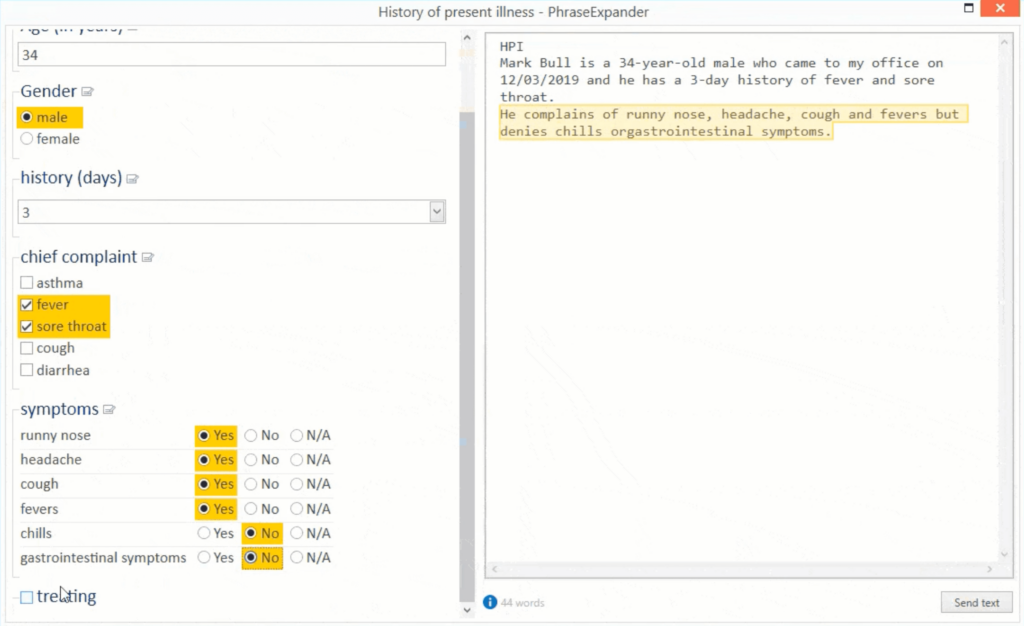Helping people deal with difficult emotions and situations is what therapists do for a living. But when faced with the exhaustion and stress of the job, how can therapists help themselves?
Being a therapist could be fulfilling but also exhausting and tiring. You are constantly exposed to the pain and trauma of your clients, and you may also have to deal with professional, financial, and personal stresses.
This article will explore the causes of burnout and provide strategies for avoiding it as a therapist.
What is Burnout?
The phrase “therapist burnout” characterizes the stress and diminished effectiveness that some working therapists may experience.
Therapist burnout could be categorized into three categories: an inability to empathize, diminished accomplishment, and emotional exhaustion. Both you and your clients might be adversely impacted if you experience burnout.
It can diminish qualities such as compassion, empathy, and rapport with clients, which are all necessary for successful therapy sessions. Also, the likelihood of unethical behavior, malpractice, and compromised care for clients increases when you experience burnout as a therapist.
Signs You’re Experiencing Burnout as a Therapist
According to studies, realizing you are experiencing burnout is the hardest part of treating it. As a therapist, putting yourself last in the queue of priorities might be a lot easier when you could be helping someone else. Some of the signs you’d notice might include:
- A sense of relief when clients cancel appointments
- Having trouble paying attention while clients are talking to you
- Ignoring the desires of a client in favor of pushing your notion or method
- A loss of compassion for others
- Having trouble falling asleep
- Observing a lack of clear boundaries with clients
- Having a hard time keeping up with the demands of everyday life
- Lack of confidence that your chosen career is the right one
What Causes Burnout?

In a 2020 survey, 78.9% of therapists reported feeling burned out. Numerous stressors have exacerbated therapist burnout in recent years. Anything that triggers a stress response in your body is considered a stressor.
It may be anything from a cranky boss to an uncooperative client to a delayed bus. Some factors that can lead to burnout for therapists are:
- Lack of emotional distance from clients’ problems
- Political or social stressors
- Clients that are hostile, depressed, or suicidal
- Physical exhaustion
- Caring more for the needs of others than yours
- Accumulation of paperwork
- Dealing with clients’ emergencies
- Clients that are making slow progress
9 Ways to Avoid Burnout as a Therapist
Burnout is not unavoidable, though it might appear so. There are ways therapists can avoid feeling emotionally exhausted from work and disengaged from clients.
1. Take Care of Yourself Every Day
The best defense against burnout is a healthy dose of self-care. Self-care is defined by the World Health Organization (WHO) as “actions taken by people, families, and communities to improve their health and well-being, whether or not they have access to professional health care.”
Avoiding therapist burnout requires prioritizing your own needs before those of your clients. Get plenty of sleep at night, short pauses between your therapy sessions, and healthy meals during the day. Don’t forget to “feed” your emotional demands; make time for enjoyment and use your support systems.
2. Establish Positive Boundaries
To be healthy means being honest with yourself and others about what you need. Burnout is a real possibility when you push yourself beyond your limits at work.
Therefore, therapists must establish clear limits between their professional and personal lives. Sometimes, at the end of a hard day, it’s simpler to lock up the office and take some paperwork home in the evening.
Occasionally, taking your work home is cool, but if you’re always taking your work home, glued to your pager or cell phone at home, you need to give yourself more time off.
3. Do Activities That Interest You

Participating regularly in activities is challenging without preexisting interests, but it can be beneficial. The benefits of play have been well documented, and frequent recreational activity is essential for maintaining a healthy lifestyle and coping effectively with stress.
By broadening your mental horizons with interests unrelated to your career, you can create a separation between your work and private life. For instance, according to research, taking care of plants is an easy way to alleviate tension and anxiety.
4. Invest in Personal Development
Always continue learning and growing in ways that benefit your work and personal life. This development can help avoid therapist burnout since it piques your interest, broadens your horizons, and re-ignites your passion and excitement.
Adopting a development attitude would help, seeing difficulties as lessons and chances to grow. Here are some ideas you could explore
- Attend workshops and seminars
- Take courses online and attend webinars
- Pursue advanced qualifications and certifications
- Join peer learning groups with other therapists
- Read professional journals to stay abreast of your field’s latest research and development
- Seek a mentor in your field
5. Join a Professional Association
Joining a professional association provides several benefits, including access to monthly industry updates and regular opportunities to network with other mental health therapists.
You’ll feel more connected to others in your area and better understand recent legal and ethical changes in your industry.
There are numerous verified professional bodies you can associate with. Below are a few of these professional associations:
- American Mental Health Counselors Association (AMHCA)
- American Counseling Association (ACA)
- American Association of Sexuality Educators, Counselors, and Therapists (AASECT)
- American Association For Marriage and Family Therapy
- American Group Psychotherapy Association
- National Association of Cognitive-Behavioural Therapists (NACBT)
- National Society of Genetic Counselors (NSGC)
6. Be Physically Active

Feeling like you can’t get anywhere could be an indication of burnout. It would be best if you made an extra effort to increase your activity level. Stress, emotional tiredness, and the distress associated with burnout can all be mitigated with regular exercise.
Standing up, walking around, or stretching will assist, even if a full-on gym session is out of the question. Try some burpees or a bike ride for a cardio workout. It might seem challenging if you do it infrequently, but it’ll get easier with practice.
If you can only execute the exercise for a few seconds today, try increasing the time by a few seconds each day. The trick is to take a new approach: getting started.
7. Maintain Your Social Networks
Burnout is inevitable when the mental health caseload is heavy, especially when the cases are challenging. Instead of solving such problems alone, you should discuss them with your coworkers. You can avoid burnout as a therapist by accessing ongoing peer support and advice.
Also, create time to hang out with your friends and colleagues. Visiting parks and playing games with friends would relieve stress and help you avoid burnout.
8. Celebrate Your Small Wins
If you haven’t achieved the “great” life you always dreamed of, it doesn’t mean you aren’t living a meaningful one. Instead of striving for perfection, success lies in appreciating the small victories along the way.
One helpful practice involves keeping a journal to record the positive events in your life, no matter how insignificant they may initially appear. Reflecting on all the positive developments in your life will lead you to an attitude of thankfulness and joy.
9. Reduce Documentation Workload
In addition to the emotions you encounter with your clients, completing tasks like taking client histories, writing evaluation reports, or writing treatment plans can be stressful and cause therapist burnout.
A way to avoid this would be to employ strategies to lessen your workload and help you save some time while at it. For example, PhraseExpander could reduce the time spent on documenting by half.

PhraseExpander is a tool that allows you to store all your terms and templates in a single place and pull them up instantly by typing the first few letters of those words. It shows suggestions as you type in any section of your EMR (electronic medical records).
So you can autocomplete lengthy notes you often write when interviewing patients/clients. Here’s what a user has to say about the tool:
“One of my favorite features is the option to build templates with fill-ins, texts, or yes/no values. Most significantly, it is excellent and effective to have the option to use sections, update, or insert macros. PhraseExpander is a revolutionary tool that helps users save time and business money.”
– Camalyn (Medical Director in the US)
Get Started with PhraseExpander
Want to learn what PhraseExpander can do for you? Start your free trial
Final Thoughts
Being a therapist is a beautiful and satisfying career since you get to aid in the recovery and development of other people. However, the stresses of your complex and demanding job may be affecting your health.
The adverse effects of therapist burnout on patients’ well-being, satisfaction, and treatment are real. That’s why it’s crucial to prioritize your well-being alongside that of your clients.
You can safeguard your health and avoid burnout as a therapist by implementing the suggestions discussed in this article. You can get better at what you do and enjoy your job more.
